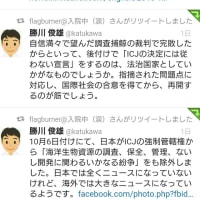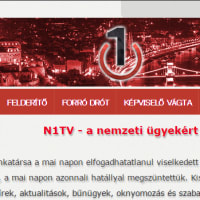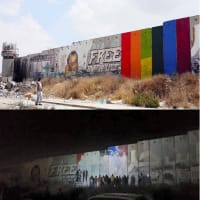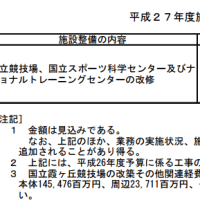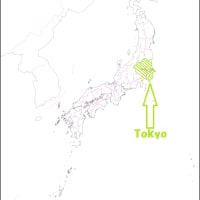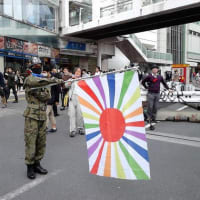俺も全く知らなかったのだが、レバノンには少数ながらユダヤ教徒の人達が住んでいるらしい。
・Uncovering Lebanon's Jewish past(2014年10月7日 aljazeera.com)
レバノンに住んでいるユダヤ教徒の人達の人数は、レバノン国内やレバノン周辺国の情勢に影響される所が多かった模様。
そしてそれは、レバノンにおけるユダヤ教徒の扱いにも少なからぬ影響があったようで・・・。
以下、2014年10月7日 aljazeera.com『Uncovering Lebanon's~』からそれを説明してる部分を(略)
---- 以下引用 ----
(中略)
Although the presence of Jews in modern-day Lebanon is believed to date back millennia, it was not until the first half of the 20th century that the small - the 1932 national census put the country's Jewish population at around 3,500 - but active community began to thrive, with various educational and religious institutions built to cater to its needs.
Although some decided to move to Israel when it was created in 1948, a wave of immigration from Syria meant that Lebanon became the only country in the region whose Jewish population increased in the 1950s.
"It peaked to about 10,000," said Tomer Levi, author of the book, The Jews of Beirut.
But after the 1967 Israeli-Arab war and the ensuing Palestinian exodus, the population began to dwindle, and according to a 1995 article by Lebanese daily An-Nahar, by 1971, there were at most 4,000 Jews left in Lebanon.
With the advent of Lebanon's civil war in 1975, Lebanese from all religious groups fled the country in droves, and by 1982 - the year Israel invaded the country - "a few hundred Jews remained in Beirut", Levi said.
According to members of the community still here today, however, life for Lebanon's Jews during those decades was largely peaceful, with Judaism among the 18 sects that were explicitly recognised and protected by the post-independence revised constitution.
S, a Jewish-Lebanese man who asked not to be identified by his full name, grew up in Lebanon and is a part-time custodian of the country's Jewish heritage sites.
Both of his parents are Jewish, and he said that from their stories, "life before the [civil] war was good".
He described the pre-war Jewish community as "well-integrated and respected".
These days, however, the community has a much more precarious position within society.
"It is not taboo to be Jewish here," explained Paul Taber, an associate professor of sociology at the Lebanese American University.
"But it is difficult, and that's largely because of the the political climate in the region, especially the current policies of the Israeli state, such as the war in Gaza and settlements in the West Bank."
(以下略)
---- 引用以上 ----
自称「ユダヤ国家」のイスラエル、か。
一部の方々にとっては、レバノンに住むユダヤ教徒の人達は「第五列」に思えるのかもしれん。
実際、一部のラビは(イスラエルの国是である)シオニズムを煽ってるわけで・・・。
話を戻す。
レバノンに住むユダヤ教徒の人達は、イスラエルとシオニズムに関して結構複雑な考えを持ってるっぺぇ。
・The Return of Lebanon’s Jews(2014年5月24日 aawsat.net)
参考までに、2014年5月24日分 aawsat.net『The Return of Lebanon’s Jews』から中盤部分を(略)
---- 以下引用 ----
(中略)
The head of the Jewish community in Lebanon, Isaac Arazi, told Asharq Al-Awsat: “We are experiencing a problem regarding our name because of its sensitivity to a large number of Lebanese, and we understand that.”
He added, “We tried to work with the former minister, Ziyad Baroud, when he headed the Interior Ministry to change the name to the ‘Jewish’ community, but were unable to achieve this. This is something we are working on to this day.”
Identity crisis
Arazi explained that efforts are being made to revive the community’s public presence in Lebanon, including renovating and reopening the Magen Avraham Synagogue―the only existing synagogue in the capital: “Lying in the Wadi Abu Jamil neighborhood of the Beirut Central District, historically home to the largest number of Jews, it was destroyed during the civil war that broke out in the 1970s.”
He told Asharq Al-Awsat: “We have managed to collect donations from the Jewish community abroad, all of them being Lebanese Jews. Christians and Muslims have also contributed to the reconstruction of our synagogue.”
But the perceived relationship between Lebanon’s Jews and the Jewish ‘homeland’ to the south raises major problems for some Lebanese.
Speaking forcefully, Arazi said, “To be clear, if our allegiance was to Israel, then we would not stay here another moment.”
He explicitly denied any relation to those who wish to live on the land of Palestine, stressing that “not all Jews are Zionists. Our identity is Lebanese and we belong to Lebanon, a hundred percent.”
But Sonia, a Lebanese Jew in her sixties, differed from Arazi.
She told Asharq Al-Awsat that, in her opinion, “there is no Zionist or Jewish; Jews are all one and they cannot evade their identity.”
“After the emergence of major hostility between Arabs and Jews, my husband’s family deprived me of my children because of my Jewish heritage,” Sonia continued.
“They fought me using all forms of psychological torture. I left my family, who had chosen to go and live in Israel, in order to stay in Lebanon with my husband and children. But the consequences of the Israeli–Arab conflict show no mercy for my existence as a human being.”
Sonia said that she did not care about the isolation imposed on the community, ending her comments unequivocally.
“When I die, I want to be buried in a Jewish cemetery with a Jewish rabbi praying over me,” she said.
“The Torah is my sacred text, and Judaism is my religion. I will never give that up.”
(以下略)
---- 引用以上 ----
上の引用部分における発言ってのは、シオニズムってのがユダヤ教徒の人達にとってどういう意味を持つのかってのを端的に示してるのかもな。
ユダヤ教徒の人達が持ってる伝統を否定する側面もありつつ、「ユダヤ国家」の名の下に世界各国にいるユダヤ教徒の人達をまとめるという・・・。
いずれにしろ、シオニズムが世界各国にいるユダヤ教徒の人達の考えや語りに何らかの影響を与えてるのは否めない。
例えシオニズムを批判するにしろそれを受け入れるにしろ。
なお、レバノンに住むユダヤ教徒の人達の多くは、迫害を避けるため表面上イスラム教に改宗している。
これに関し、Ibrahim(偽名)は意味深な指摘をしていた。
以下、2014年5月24日分 aawsat.net『The Return of Lebanon’s Jews』からその部分を(略)
---- 以下引用 ----
(中略)
Ibrahim told Asharq Al-Awsat: “On paper, I am a Muslim. I changed my religion to escape the problems and absurdities that surrounded me. Some Lebanese do not accept our presence among them, and we have become obsessed with living as Jews in public.”
He stopped for a moment to light his cigar and brush the dust off his white shirt before continuing his narrative, recalling a time when Lebanon’s Jewish community did not have to hide: “Tailoring is a family business. I used to tailor clothes for princes, ministers and ambassadors of all Arab nationalities. I used to carry a diplomatic passport and receive invitations from Arab notables to accompany them to events in order to take care of their uniforms.”
Ibrahim laughed when asked about the way of life for a Jew in Lebanon.
"Jews in Lebanon experience the same difficult social conditions as the rest of Lebanese society, and share with them a common concern for a country on the brink of the abyss,” he said.
“Their opportunities for friendship are limited, and they keep their ‘Jewishness’ a secret. I’m one of them.”
(以下略)
---- 引用以上 ----
心ない人達は「イスラエルに行け」なんて言い出しそうだが・・・。
・Uncovering Lebanon's Jewish past(2014年10月7日 aljazeera.com)
レバノンに住んでいるユダヤ教徒の人達の人数は、レバノン国内やレバノン周辺国の情勢に影響される所が多かった模様。
そしてそれは、レバノンにおけるユダヤ教徒の扱いにも少なからぬ影響があったようで・・・。
以下、2014年10月7日 aljazeera.com『Uncovering Lebanon's~』からそれを説明してる部分を(略)
---- 以下引用 ----
(中略)
Although the presence of Jews in modern-day Lebanon is believed to date back millennia, it was not until the first half of the 20th century that the small - the 1932 national census put the country's Jewish population at around 3,500 - but active community began to thrive, with various educational and religious institutions built to cater to its needs.
Although some decided to move to Israel when it was created in 1948, a wave of immigration from Syria meant that Lebanon became the only country in the region whose Jewish population increased in the 1950s.
"It peaked to about 10,000," said Tomer Levi, author of the book, The Jews of Beirut.
But after the 1967 Israeli-Arab war and the ensuing Palestinian exodus, the population began to dwindle, and according to a 1995 article by Lebanese daily An-Nahar, by 1971, there were at most 4,000 Jews left in Lebanon.
With the advent of Lebanon's civil war in 1975, Lebanese from all religious groups fled the country in droves, and by 1982 - the year Israel invaded the country - "a few hundred Jews remained in Beirut", Levi said.
According to members of the community still here today, however, life for Lebanon's Jews during those decades was largely peaceful, with Judaism among the 18 sects that were explicitly recognised and protected by the post-independence revised constitution.
S, a Jewish-Lebanese man who asked not to be identified by his full name, grew up in Lebanon and is a part-time custodian of the country's Jewish heritage sites.
Both of his parents are Jewish, and he said that from their stories, "life before the [civil] war was good".
He described the pre-war Jewish community as "well-integrated and respected".
These days, however, the community has a much more precarious position within society.
"It is not taboo to be Jewish here," explained Paul Taber, an associate professor of sociology at the Lebanese American University.
"But it is difficult, and that's largely because of the the political climate in the region, especially the current policies of the Israeli state, such as the war in Gaza and settlements in the West Bank."
(以下略)
---- 引用以上 ----
自称「ユダヤ国家」のイスラエル、か。
一部の方々にとっては、レバノンに住むユダヤ教徒の人達は「第五列」に思えるのかもしれん。
実際、一部のラビは(イスラエルの国是である)シオニズムを煽ってるわけで・・・。
話を戻す。
レバノンに住むユダヤ教徒の人達は、イスラエルとシオニズムに関して結構複雑な考えを持ってるっぺぇ。
・The Return of Lebanon’s Jews(2014年5月24日 aawsat.net)
参考までに、2014年5月24日分 aawsat.net『The Return of Lebanon’s Jews』から中盤部分を(略)
---- 以下引用 ----
(中略)
The head of the Jewish community in Lebanon, Isaac Arazi, told Asharq Al-Awsat: “We are experiencing a problem regarding our name because of its sensitivity to a large number of Lebanese, and we understand that.”
He added, “We tried to work with the former minister, Ziyad Baroud, when he headed the Interior Ministry to change the name to the ‘Jewish’ community, but were unable to achieve this. This is something we are working on to this day.”
Identity crisis
Arazi explained that efforts are being made to revive the community’s public presence in Lebanon, including renovating and reopening the Magen Avraham Synagogue―the only existing synagogue in the capital: “Lying in the Wadi Abu Jamil neighborhood of the Beirut Central District, historically home to the largest number of Jews, it was destroyed during the civil war that broke out in the 1970s.”
He told Asharq Al-Awsat: “We have managed to collect donations from the Jewish community abroad, all of them being Lebanese Jews. Christians and Muslims have also contributed to the reconstruction of our synagogue.”
But the perceived relationship between Lebanon’s Jews and the Jewish ‘homeland’ to the south raises major problems for some Lebanese.
Speaking forcefully, Arazi said, “To be clear, if our allegiance was to Israel, then we would not stay here another moment.”
He explicitly denied any relation to those who wish to live on the land of Palestine, stressing that “not all Jews are Zionists. Our identity is Lebanese and we belong to Lebanon, a hundred percent.”
But Sonia, a Lebanese Jew in her sixties, differed from Arazi.
She told Asharq Al-Awsat that, in her opinion, “there is no Zionist or Jewish; Jews are all one and they cannot evade their identity.”
“After the emergence of major hostility between Arabs and Jews, my husband’s family deprived me of my children because of my Jewish heritage,” Sonia continued.
“They fought me using all forms of psychological torture. I left my family, who had chosen to go and live in Israel, in order to stay in Lebanon with my husband and children. But the consequences of the Israeli–Arab conflict show no mercy for my existence as a human being.”
Sonia said that she did not care about the isolation imposed on the community, ending her comments unequivocally.
“When I die, I want to be buried in a Jewish cemetery with a Jewish rabbi praying over me,” she said.
“The Torah is my sacred text, and Judaism is my religion. I will never give that up.”
(以下略)
---- 引用以上 ----
上の引用部分における発言ってのは、シオニズムってのがユダヤ教徒の人達にとってどういう意味を持つのかってのを端的に示してるのかもな。
ユダヤ教徒の人達が持ってる伝統を否定する側面もありつつ、「ユダヤ国家」の名の下に世界各国にいるユダヤ教徒の人達をまとめるという・・・。
いずれにしろ、シオニズムが世界各国にいるユダヤ教徒の人達の考えや語りに何らかの影響を与えてるのは否めない。
例えシオニズムを批判するにしろそれを受け入れるにしろ。
なお、レバノンに住むユダヤ教徒の人達の多くは、迫害を避けるため表面上イスラム教に改宗している。
これに関し、Ibrahim(偽名)は意味深な指摘をしていた。
以下、2014年5月24日分 aawsat.net『The Return of Lebanon’s Jews』からその部分を(略)
---- 以下引用 ----
(中略)
Ibrahim told Asharq Al-Awsat: “On paper, I am a Muslim. I changed my religion to escape the problems and absurdities that surrounded me. Some Lebanese do not accept our presence among them, and we have become obsessed with living as Jews in public.”
He stopped for a moment to light his cigar and brush the dust off his white shirt before continuing his narrative, recalling a time when Lebanon’s Jewish community did not have to hide: “Tailoring is a family business. I used to tailor clothes for princes, ministers and ambassadors of all Arab nationalities. I used to carry a diplomatic passport and receive invitations from Arab notables to accompany them to events in order to take care of their uniforms.”
Ibrahim laughed when asked about the way of life for a Jew in Lebanon.
"Jews in Lebanon experience the same difficult social conditions as the rest of Lebanese society, and share with them a common concern for a country on the brink of the abyss,” he said.
“Their opportunities for friendship are limited, and they keep their ‘Jewishness’ a secret. I’m one of them.”
(以下略)
---- 引用以上 ----
心ない人達は「イスラエルに行け」なんて言い出しそうだが・・・。











